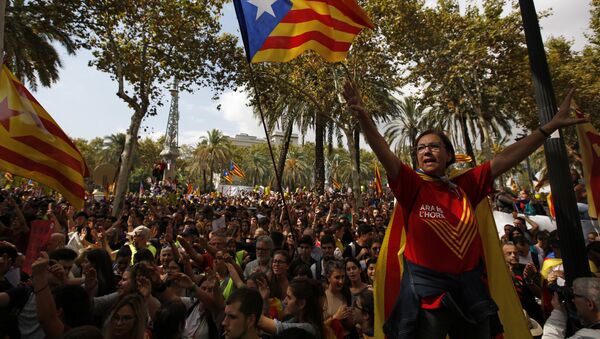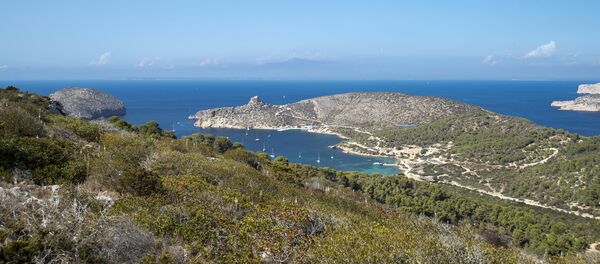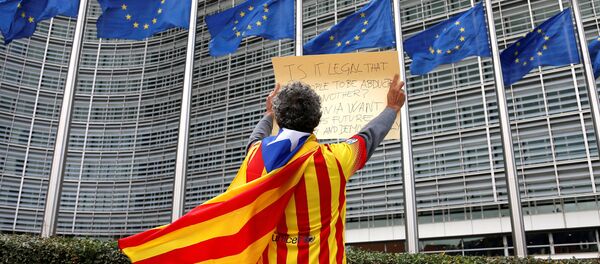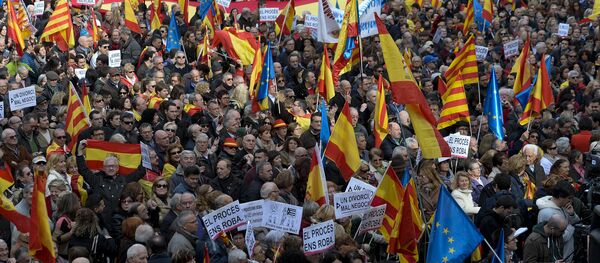MOSCOW (Sputnik) — According to the Catalan authorities, more than 90 percent of the more than 2 million votes cast backed independence, but Madrid considers the vote illegal. The population of Catalonia is 7.5 million, with some 5.4 million eligible voters.
Catalan Vote Spells Doom for Rajoy's Political Career
According to Zanni, it was difficult to assess what consequences the conflict between Madrid and Catalonia would have, but the prime minister's political career would likely suffer.
"I think that the most important political consequence of what happened… [on Sunday] in Catalonia will be the end of this minority government and the end of the political career of Rajoy," Zanni said.
The current Spanish government was formed following a prolonged deadlock, as neither Rajoy's People's Party (PP) nor the Spanish Socialist Workers' Party (PSOE) were able to form the government on their own.
PP holds 134 seats in a 350-seat Congress of Deputies and 149 seats in a 266-seat Senate. PSOE has 84 and 62 seats, respectively.
"In fact, without the support of the Basque Indip. Party [Basque Nationalist Party (PNV)], he [Rajoy] will not be able to pass the 2018 budget in the parliament; that will trigger early elections in spring 2018 without a clear view on the result," Zanni said.
PNV and its five seats in the lower chamber of the parliament were crucial for the passage of the 2017 budget. However, Basques have also had several separatist movements in the past and a first-hand experience of the struggle for independence.
Zanni concluded by saying that the election campaign would be held in a "nervous" atmosphere.
Referendum May Cause Instability in EU
The European Union may have to deal with the ripple effect of the instability in Spain, according to the Italian politician.
"For the EU consequences could be two-folded: there could be a negative impact on future reforms of the EU and the eurozone (Rajoy has been one of the most important allies for EU institution and Brussels), and impact on the stability of Spain and Spanish government that could bring Podemos or other anti-EU parties to the power in Spain," Zanni explained.
The member of the European Parliament suggested that the positive impact of the Catalan referendum for the European Union might be "weaknesses of a nation state," setting up an opportunity to "create a more centralized and undemocratic EU."
Zanni added that the European Union and its member states would have to take a clearer stance on the issue if the Catalan government unilaterally declared its independence.
The European Commission said Monday it considered the vote illegal, but stressed that the issue was an internal one.
Madrid sent security forces to Catalonia in an attempt to derail the referendum. According to the Catalan Health Department, 893 people had to seek medical treatment in clashes on the day of the referendum.





